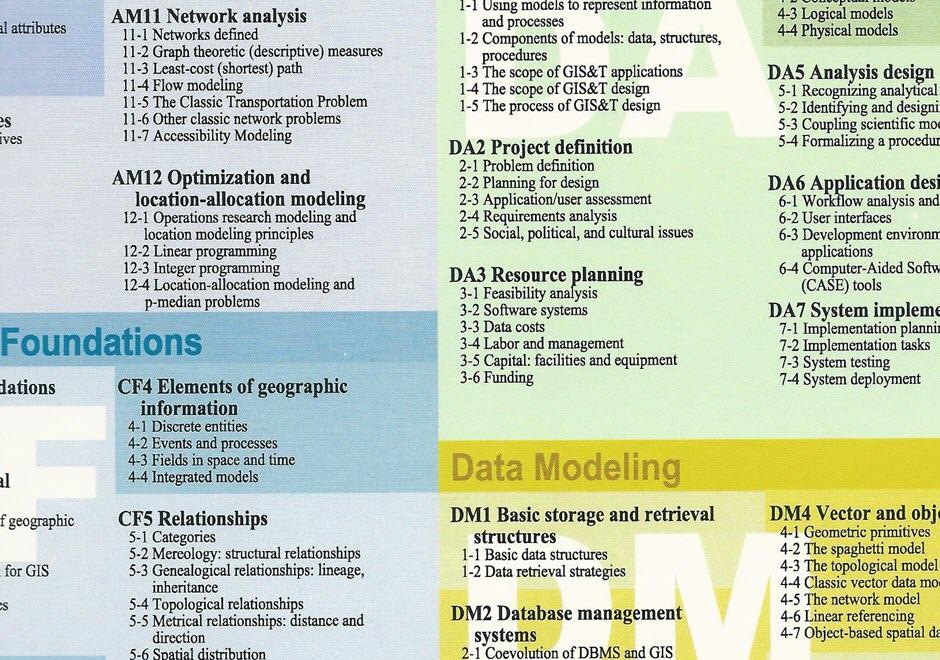DM-04 - Object-oriented DBMS

- Describe the basic elements of the object-oriented paradigm, such as inheritance, encapsulation, methods, and composition
- Evaluate the degree to which the object-oriented paradigm does or does not approximate cognitive structures
- Explain how the principle of inheritance can be implemented using an object-oriented programming approach
- Defend or refute the notion that the Extensible Markup Language (XML) is a form of object-oriented database
- Explain how the properties of object orientation allows for combining and generalizing objects
- Evaluate the advantages and disadvantages of object-oriented databases compared to relational databases, focusing on representational power, data entry, storage efficiency, and query performance
- Implement a GIS database design in an off-the-shelf, object-oriented database
- Differentiate between object-oriented programming and object-oriented databases

DM-17 - Object-based spatial databases